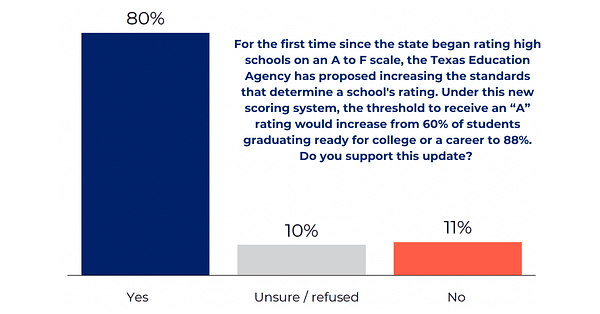This is a preview of our Texas 2036 newsletter with what you need to know ahead of this month’s legislative special session. To receive this weekly look at our work, sign up here.

Lawmakers convened Monday for the third called session of the 88th Legislature. In proclaiming the special session, Gov. Greg Abbott called on lawmakers to consider and act on education savings accounts, among other topics.
As committees work this week on crafting the session’s legislation, here are seven things to know about Texas 2036’s work on public education.
1. Building on Success
From pioneering reforms in community college finance to the strategic expansion of apprenticeship programs and the further alignment of education-to-workforce outcomes, the 88th Legislature made a tangible commitment to the future of Texas.
Texas 2036 was proud to be an instrumental partner in this endeavor, leveraging data-driven, evidence-based policies to support accountability, assessment and transparent systems.
2. In the Green
Lawmakers have room to invest financial resources this special session. Texas Comptroller Glenn Hegar last week revised upward the revenue available to lawmakers as they begin work on the items in the governor’s call.
- The new $18.3 billion fund balance is a $4 billion increase from Hegar’s previous revenue estimate from this summer.

3. Money is on the Table
During the regular session, lawmakers enacted $6.3 billion in new public education spending, with another $4.5 billion contingently approved.
- The takeaway: there’s room under the current budget allowing for greater flexibility and opportunity for legislators to find solutions and compromise.
4. 5 Million Students and Counting
Average daily attendance (ADA), which is the average number of students in attendance on a given day, is projected to rebound by 2024-2025 and is expected to surpass five million.
5. Texans Love Their Schools and Want Them Held Accountable
In our August voter poll, we asked Texans how important it was for their community to have a good public school system. Nearly everyone — 96% — thought it was important to one degree or another.
- But they also thought it was important to raise academic accountability standards. TEA’s proposed initiative to elevate the standards for school ratings was supported by 80% of surveyed voters.

6. Stakes are High
It’s never been more important to graduate students equipped for success in the workforce. Eighth-grade Texans are likely to lose out on $104 billion in future earnings — with low-income students bearing the bulk of that loss — due to their lack of readiness for the future.
7. Making the Case for Rigorous and Aligned Curriculum
High-Quality Instructional Materials provide students with rigorous grade-level content and effective learning strategies, helping them engage more deeply and meaningfully with the facts and concepts they are studying.





